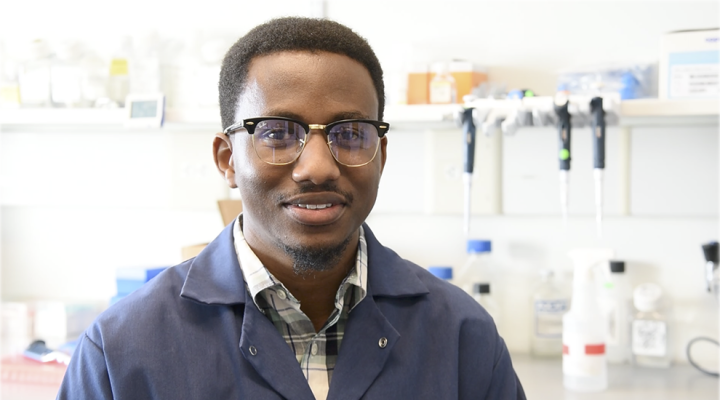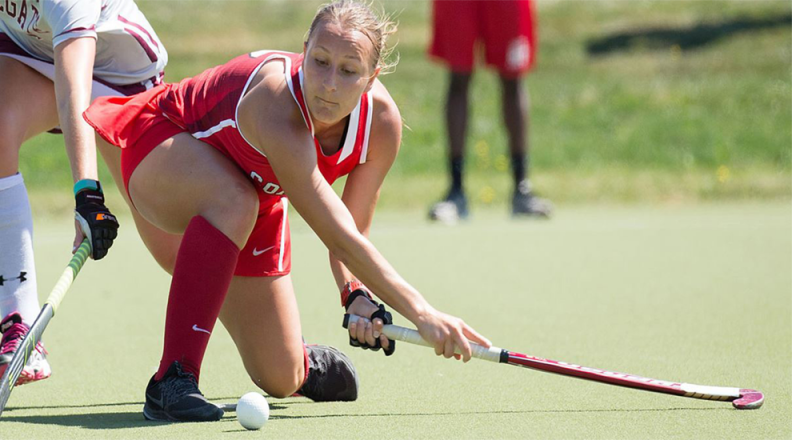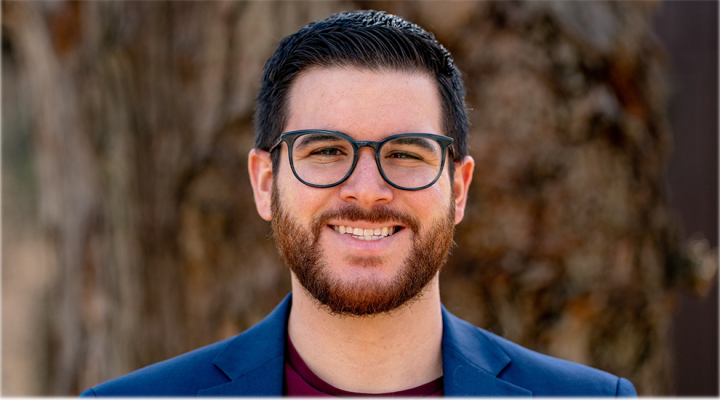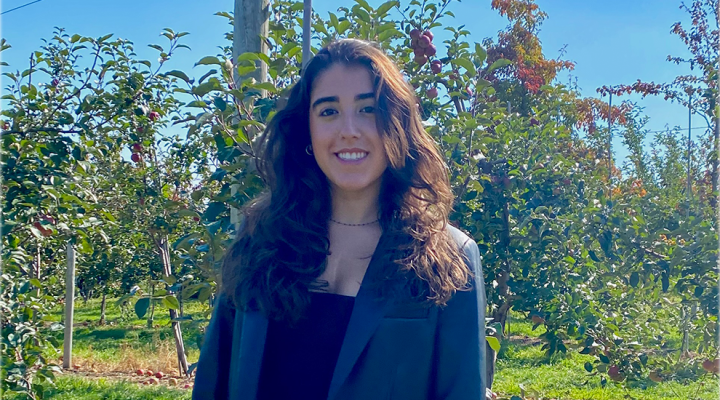Degree: B.S.
Year: 2020
Concentration: Biomechanics and mechanobiology (BMMB)
Sport: Varsity Field Hockey
Why Cornell? Why BME? Why biomechanics and mechanobiology?
I am from Cape Town, South Africa and I decided to come to America for a couple of reasons. I saw a lot more opportunity for growth here, I saw a more competitive path for my sport here, and the field I wanted to study wasn’t offered as an undergraduate option at home. Biomedical engineering is a great combination of my interests in both engineering and medicine. BME is still a very new field, and I saw this as a place with a lot of opportunity and the potential for rapid development. (And it hasn’t failed these expectations!) I felt I could relate to the biomechanics concentration more with my involvement in sport and exposure to many injured teammates over time.
How did you get started in field hockey and what do you love about it?
I started playing Field Hockey when I was in first grade, as it’s a big sport back home. I picked it up because my older sister was loving the sport, and, as most people do when they’re young, I was trying out all the sports on offer. Field hockey became my primary sport in 9th grade when playing more than 1 sport became difficult. I loved how competitive the sport was, how it was such great exercise and also how close I had become with my field hockey team and how community-orientated the field hockey culture was in South Africa.
Does your major/concentration have any association/connection to your chosen sport?
Injury’s in sport are a common happening. With my sport, I have obtained an insight into how common injury in sport is and have become sensitized to the impacts of injury. Mechanobiology deals with a lot of these aspects, such as broken bones and ligaments or even injured organs. Being an athlete, I have also realized how lucky I am to be healthy and be able to play the sport I love, which makes me want to help those who aren’t as fortunate even more!
Any specific facets of your coursework that inspire you, and in what way?
I really enjoyed BME 3410 course lecture on "Impact, Impulse, and Injury". We got to learn about the biomechanics behind injuries associated with sudden acceleration and deceleration. It was fascinating to gain an understanding of how parts of the body reacted under sudden loading and unloading and the healing process of the injury post-trauma.
In what way(s) does your identity as a student inform your identity as an athlete and vice versa?
Being a student at Cornell keeps me grounded and helps me to realize that there are things I can learn from everyone around me, no matter their age. This is especially important in sport and life in general. Being a student also makes me that much more excited to get on the field and take a break from work!
Being an athlete has helped me to develop the perseverance required to do tough work and accept failures and successes with a learning attitude. It has also helped me to see the power of teamwork and embrace that in the classroom.
What’s the best/ most challenging aspect of being a student athlete?
Without a doubt, the most rewarding aspect of being a student-athlete is the close bonds you form with your teammates, and with your class within your team. Although we have lots of different personalities within our class, we realized we had a 4-year long road, and we were going to stick together. And through that I have made friends I can be completely comfortable with, dependent on, and have a great time with. I guess there’s something about the 5am wake-ups, grueling fitness tests and challenging games that brings a group together!
The most challenging aspect, which is also linked to time-management, is being able to prioritize the things going on in your life. It’s tough to find a balance between practices, office hours, homework, hobbies, down-time and sleep, but it is of obvious importance. You have to realize you won’t get much of the last three things most of the time but finding a way to prioritize that occasionally over that extra practice exam is something that’s a great skill to stay happy for life and work-life going forward!
How do you balance academic/training time?
I find the rigid structure of being in season actually helps me balance my work load too. It sounds counter-intuitive, but when you have to give up 3 hours of your day for training every day, you will find yourself utilizing what remains much more effectively. During our season in the fall, my life is pretty much class, practice and homework, but that keeps me focused on the important stuff!
What other activities do you participate in on or off campus?
I am a member of the Big Red Leadership Institute and on the E-board of the Make-A-Wish Club.
Read more about Kirsten in "Spotlight on BME Student Athletes" from the 2019 BME Newsletter.





